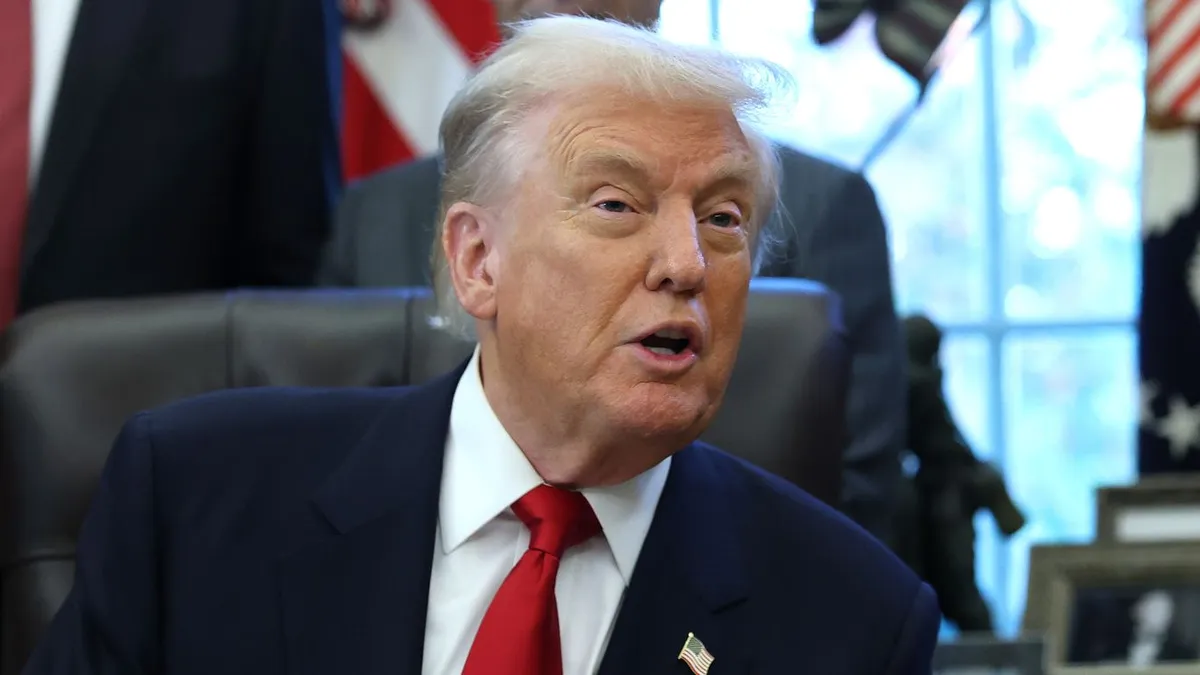
In a recent interview with Fox News, President Donald Trump emphasized the necessity of H-1B skilled worker visas, stating that certain talents are lacking within the United States. This discussion is particularly relevant as the H-1B visa program has become a contentious topic among supporters of the MAGA movement. While prominent figures like Elon Musk advocate for these visas as essential for maintaining the U.S.'s dominance in technology, critics, including Fox News host Laura Ingraham, have voiced concerns about the potential displacement of American workers by foreign employees.
Trump's comments come in the wake of an executive order he signed in September, which imposes a substantial $100,000 fee on highly skilled workers seeking to obtain an H-1B visa to work in the U.S. This move aims to regulate the influx of foreign talent while simultaneously prioritizing American job opportunities. During his appearance on The Ingraham Angle, Trump articulated the importance of balancing American workforce needs with the necessity of attracting skilled professionals from abroad.
During the interview, Trump asserted that the United States is significantly ahead of China in the realm of artificial intelligence, declaring, "we have potentially the greatest economy — already it is." Ingraham challenged Trump on whether the H-1B visa program would remain a priority for his administration, questioning the impact of importing foreign labor on wages for American workers. She argued that flooding the country with foreign workers could undermine local employment.
In response, Trump acknowledged the importance of attracting talent but contended that the U.S. lacks specific skills necessary for innovation and advancement. He reiterated, "No, you don't … you don't have certain talents, and people have to learn." This exchange highlights the ongoing debate about the availability of skilled labor within the U.S. and the role of the H-1B visa program in addressing these gaps.
Trump also referenced a recent incident where ICE conducted a raid at a Hyundai manufacturing facility in Georgia, resulting in the arrest of hundreds of South Korean workers involved in battery production. He explained that these workers were essential due to the complexity and risks associated with battery manufacturing, stating, "It's not an easy thing and very dangerous — a lot of explosions, a lot of problems." Trump argued that the U.S. cannot simply replace skilled foreign workers with individuals who have been unemployed for extended periods, emphasizing the need for expertise in high-tech industries.
As the conversation surrounding H-1B visas continues to evolve, it's clear that the intersection of immigration policy and workforce development is a critical issue for the future of the American economy. The divide within the MAGA community reflects broader concerns about job security, economic growth, and the strategic need for skilled labor. Understanding these dynamics is essential for navigating the complexities of immigration reform in the context of a rapidly changing global economy.
For more information on the implications of the H-1B visa program and its impact on the American workforce, stay tuned for further updates and analyses.